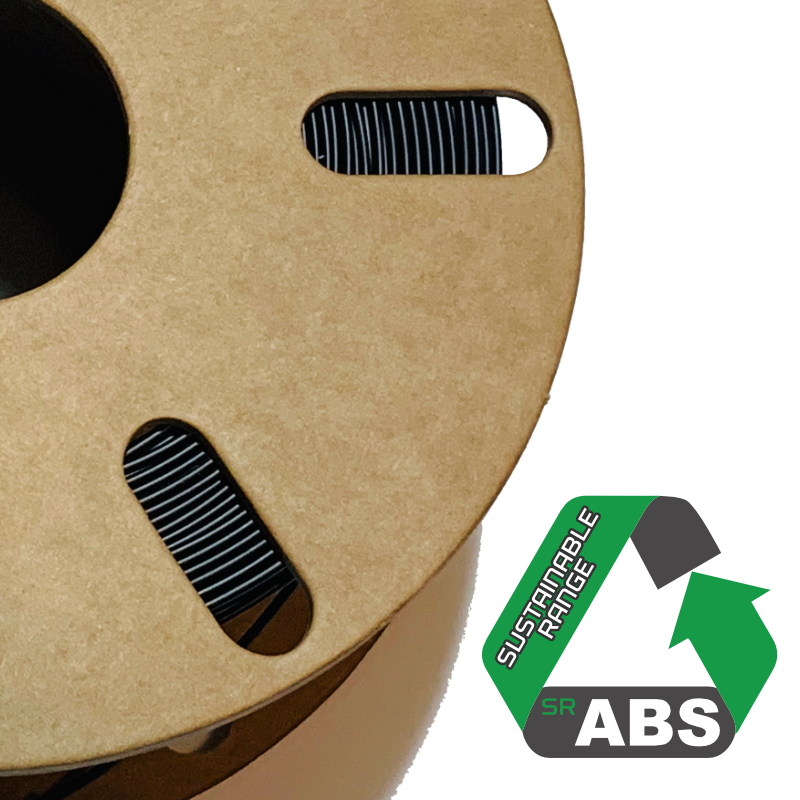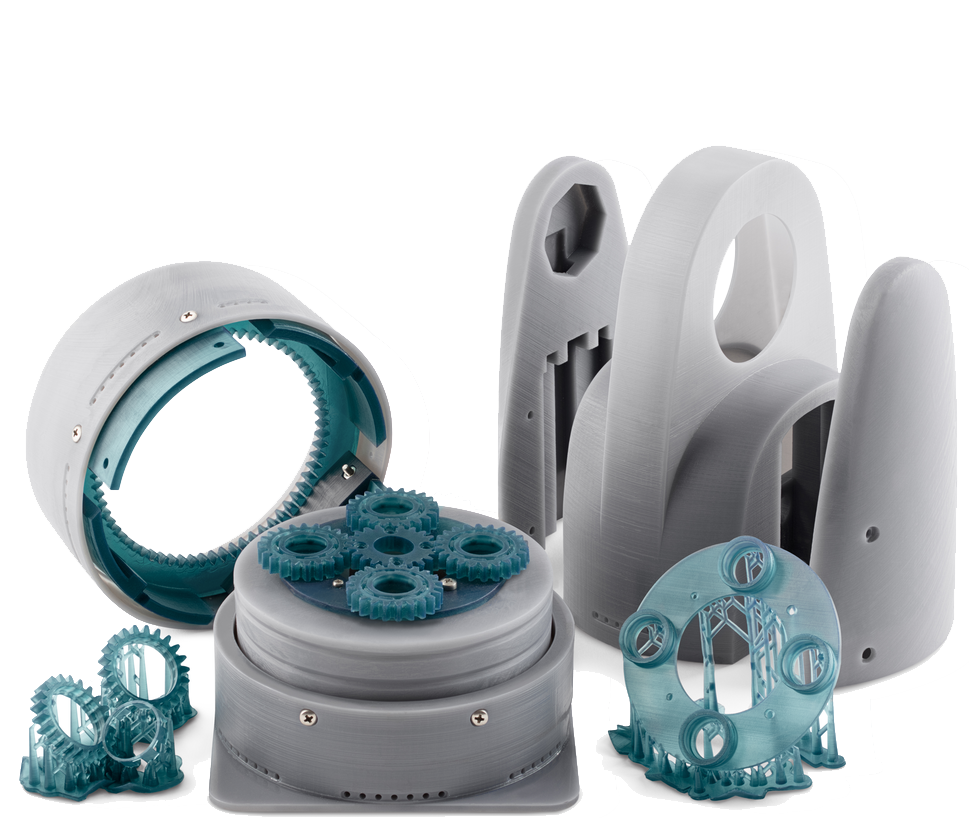Lancashire3D, a UK-based 3D printing service bureau, has launched its Sustainable Range of materials for producing 3D printed items. Made to combat wastage in material extrusion processes, the range is made from two sources of recycled plastic: unwanted parts and waste filament/supports. With it, Lancashire3D expects to reclaim over 165 kg of waste each year, and integrate a circular production process.
“We know that the planet has a finite amount of resources and that we all need to take more responsibility,” comments Steven Pearson, Co-Founder at Lancashire3D Ltd. “Governments are making plans to take action, consumers are vowing to change their behaviour, and businesses like ours are stepping up to help.”
“By creating a circular economy (production), which means that when finished with, 3D printing material returns for recycling and is changed back to printable material and reused, waste is seen as a resource and part of a continuous cycle.”

Creating 3D printing filament from UK waste stream
Founded in April 2018 in Preston, Lancashire3D provides 3D scanning, reverse engineering and 3D printing services. Using its in-house farm of 42 FFF and SLA 3D printers, it produces parts for customers from a selection of materials, including ABS, PLA, and standard resin. The company also offers customers the choice to use more durable materials, like carbon fiber composite and tough resin. Its production capacity ranges from small to mid-volume prototyping and manufacturing. Lancashire3D opened its first facility in January 2019, which has enabled the company to handle a greater range of high-performing materials, as well as allowing clients to visit the company.
Aiming to be an “Eco Responsible 3D Printing Studio,” a significant goal of Lancashire3D is sustainability. In order to reduce its environmental footprint, the company ensures that 95 percent of its waste production plastic is reclaimed and recycled into sustainable 3D printing material. The recycling is completed onsite, in order to further reduce its carbon footprint by not transporting to external recycling centres. Lancashire3D offers to 3D print products using a PET plastic material that is 100 percent recycled, for example, whereas its ABS plastic material is up to 64 percent recycled.
“We bring more than 10 years technology, design and industry experience and are committed to developing truly innovative ways to marry the art and science of 3D printing, while delivering on our vision to recycle and reuse as much as possible,” added Pearson.
With its new Sustainable Range collection of filaments, Lancashire3D is further carrying out its objective. The range was created in response to the lack of plastic waste recycling facilities in the region that is capable of processing post-3D printing waste.
Made from the company’s UK 3D printing waste stream, the new collection will supplement its existing range of recycled plastics, and will contain a minimum of 50 percent recycled material. Lancashire3D will offer to 3D print customer’s items with the material at a discounted price, in order to pass on the savings gained from reclaiming plastics, both from material wastage and the customers themselves. Currently, the Sustainable Range only includes ABS, but will soon be expanded with the addition of a PLA plastic 3D printing material.

Sustainable 3D printing
As global efforts are being made to cut down the production of single-use plastic towards more sustainable methods of manufacturing, 3D printing companies are following suit in order to improve their environmental impact.
For example, UK 3D printer filament brand Filamentive released a new 100% recycled plastic filament this year. The material is made from post-consumer PET plastic bottle waste, developed in partnership with Tridea, a company specializing in converting plastic waste to 3D filament. Nefilatek, a Montreal-based startup, also produces 3D printing filaments made from 100% recycled plastic.
Major 3D printer manufacturers are also taking a more sustainable approach towards production. Silicon Valley-based DLS company Carbon recently released its new RPU 130 resin, 30 percent of which is made from Susterra propanediol, a plant-based material from DuPont Tate & Lyle, a company specializing in bio products. Leading German 3D printer OEM EOS recently appointed a new CEO in Marie Langer, who aims to bring out the “positive environmental and social benefits” of 3D printing by focusing on sustainability.
Subscribe to the 3D Printing Industry newsletter for the latest news in additive manufacturing. You can also stay connected by following us on Twitter and liking us on Facebook.
Looking for a career in additive manufacturing? Visit 3D Printing Jobs for a selection of roles in the industry.
Featured image shows 3D printed sample made from twice-recycled waste PLA plastic. Photo via Lancashire3D.


